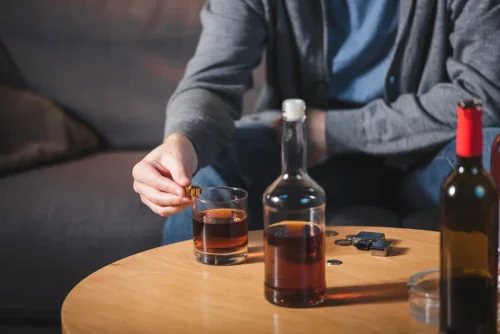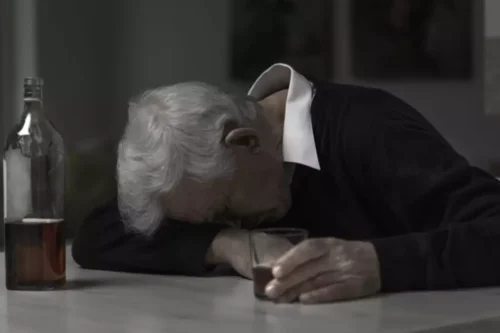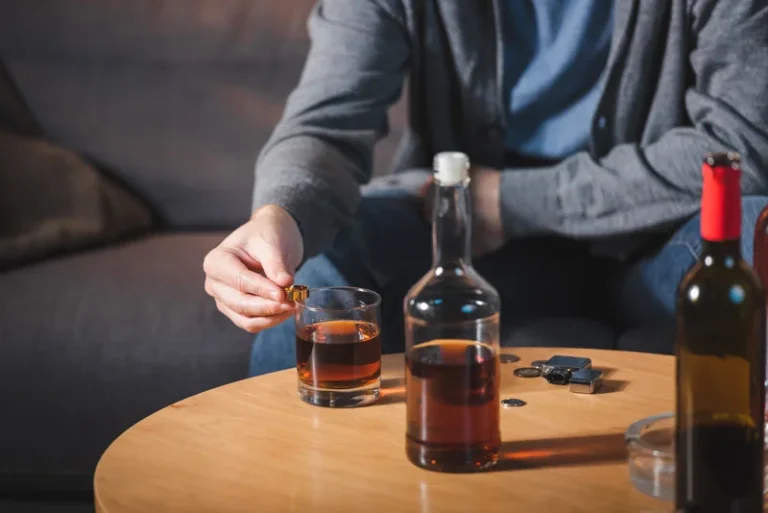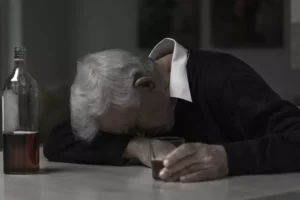
Warren is a Licensed Master Social Worker, who specializes in substance abuse and mental health treatment. Clinically, Warren has developed a therapeutic skillset that utilizes a strengths-based perspective, Twelve Step philosophies, Cognitive Behavioral Therapy and Motivational Interviewing. Furthermore, both Yoga and exercise create an opportunity for positive self-talk, replacing negative thought patterns with messages of strength, resilience, and positivity. With repeated practice, individuals may begin to see themselves in a different light through increased self-awareness.
New Tool Helps Norwegian Adolescents Understand and Manage Emotions
- Self-compassion requires us to consciously acknowledge and accept the pain caused by our previous wounds.
- Having the right people around you can make a significant difference in your journey towards sobriety.
- Dr. Small’s professional experience encompasses General Psychiatry, Addiction Psychiatry and Family Medicine.
- Feeling ashamed of immoral or unethical behavior helps us conform to social norms and maintain social order.
- Interactions between negative self-conscious and positive emotions may account for the divergent findings related to emotion and substance use.
- Individuals who feel unworthy of help or even to ask for help don’t usually seek professional treatment on their own.
Poisson, negative binomial, zero-inflated Poisson, and zero-inflated negative binomial models were estimated time period by time period and fit indices compared (AIC, SBC) to determine the best fitting distribution. The negative binomial distribution was determined to be the best fit across all substance use variables and used for all pathways predicting substance use. This randomized controlled trial (RCT) enrolled and randomized 110 sexual minority men living with HIV who had biologically confirmed methamphetamine use in the greater San Francisco Bay Area. We have previously reported the efficacy of the positive emotion intervention delivered during contingency management for achieving durable and clinically meaningful reductions in HIV viral load 42. All procedures were approved by the Institutional Review Board for the University of California, San Francisco with reliance agreements from the University of Miami and Northwestern University.
Caron Outpatient Treatment Center
In this article, we will explore how stigma affects addiction recovery, how it manifests in various forms, and, most importantly, how to overcome it. Understanding these barriers is essential for creating a supportive environment where individuals feel empowered on their path to healing. Several studies have shown that analyzing emotional problems in substance abusers is important because people in recovery experience different levels of shame and guilt than the general population.

Unconditional latent growth models
Professional support can give you the tools and strategies you need to effectively address these emotions and start building a fulfilling, sober life. On top of that, the stigma around addiction can cause deep shame, making people feel flawed or unworthy of recovery. It’s the sense that there’s something wrong with you at your core, making you feel bad or flawed as a person.
The shame spiral of addiction: Negative self-conscious emotion and substance use
While some approaches to therapy involve cognitive restructuring or trying to change negative thought patterns, ACT is centered around guilt and shame in recovery mindfulness and the acceptance of thoughts and emotions without judgment. This can be particularly beneficial for those experiencing shame and guilt, as it allows them to acknowledge these feelings without becoming overwhelmed or mired in self-blame. Developing a strong support system is crucial when it comes to coping with shame and guilt during addiction recovery.

- Self-compassion is about treating yourself with the same kindness and understanding you’d give a close friend.
- While it may seem like a daunting task, developing a plan for relapse prevention can be incredibly effective at reducing the likelihood of relapse and promoting long-term sobriety.
- It involves exhibiting empathy, kindness, and compassion towards oneself despite past mistakes or shortcomings.
Mindfulness can help you develop a more accepting and non-judgmental attitude toward your experiences. Engage in mindfulness meditation or other mindfulness practices to increase awareness of the present moment and reduce rumination on past mistakes. As we move towards ‘Distinguishing between Shame and Guilt,’ consider how each emotion manifests differently within oneself so that one may identify triggers and work effectively towards long-term sobriety.
- Know that you are worthy of forgiveness, and that you are also worthy of love.
- But you will also have some rational guilt about simple human mistakes you made and a few personal failures of the sort everyone occasionally commits in intimate relationships.
- Given that all substance use variables were counts (number of days used in the past 30 days), maximum likelihood estimation with robust standard errors and Monte Carlo integration was used.
- As the founder of Headlands Addiction Treatment Services, Dr. Small and his team have become leaders in the delivery of addiction medicine and psychiatry to treatment programs throughout California and beyond.
- Self-care encompasses activities that people engage in to take care of their physical, emotional, and mental health wellbeing.

People may avoid or distance themselves from someone who has struggled with addiction, either out of fear or misunderstanding. Dwelling on the past will only keep you depressed https://ecosoberhouse.com/article/how-marriage-changes-after-sobriety/ and unableto enjoy your present life. Asyou can see, more people can be affected by our actions than we originallyrealize. I examine why I committed the act and determine I did it out of selfishness.I put my want for cigarettes above who could be affected. Work toward letting go of self-blame and embracing a sense of forgiveness for yourself and others involved in your journey. Practice self-forgiveness and recognize that everyone makes mistakes.

These skills are essential for sustained addiction recovery because sufferers must learn how to confront challenging issues without relapsing. To practice forgiveness towards oneself, individuals can engage in different activities such as journaling, meditation, positive affirmations, seeking support from friends and family members, and embracing imperfections. Through these activities, people can release themselves from self-blame and the emotional burden that comes with it. It would be best if you had friends or family members who understand your situation and genuinely care about seeing you succeed in your recovery journey. In addition, consider joining local support groups or seeking professional help from therapists or counselors if needed.
